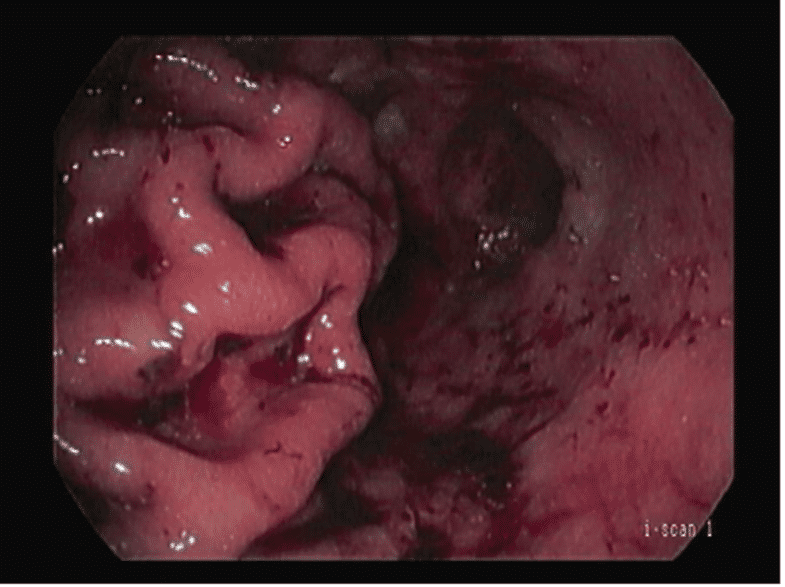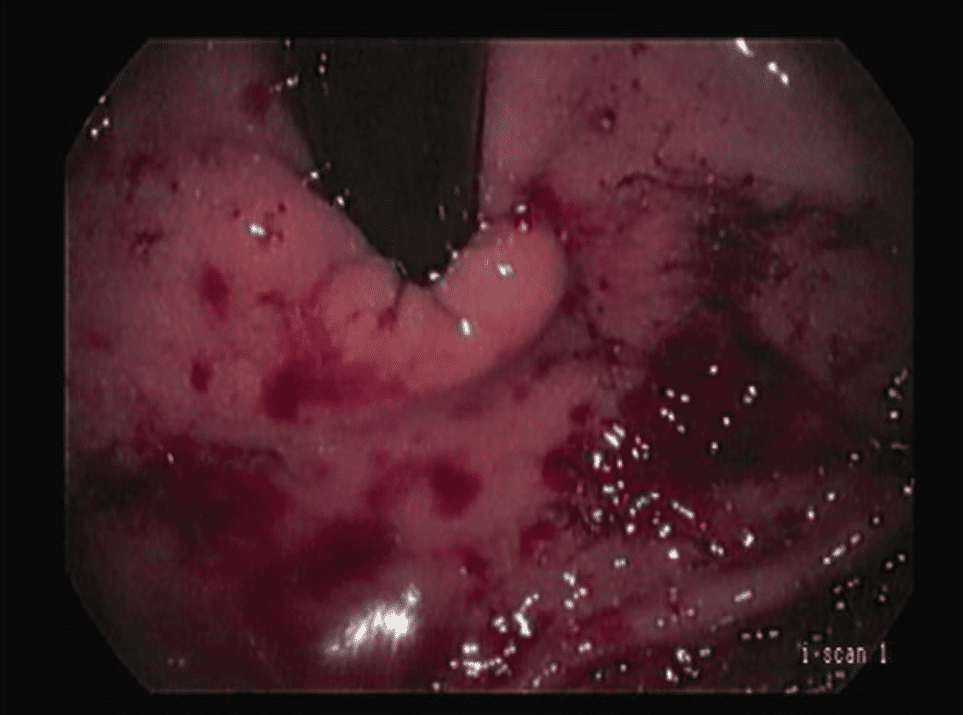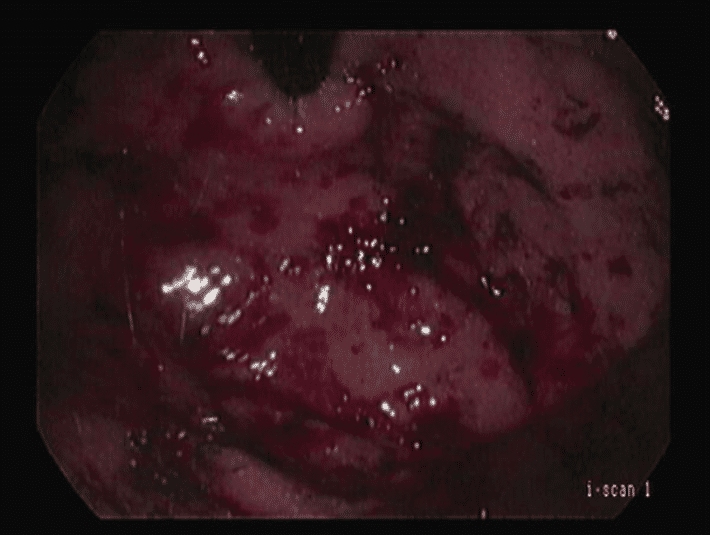
Acute Upper Gastrointestinal Bleeding Associated with Epstein-Barr Virus Infection
2Pediatric, Pediatric Department, Hospital de São Francisco Xavier - Centro Hospitalar de Lisboa Ocidental, EPE, Lisbon, Portugal, Portugal
3Pediatric, Pediatric Department, Hospital Garcia de Orta EPE,Almada, Portugal, Portugal
Epstein–Barr virus (EBV) is a herpes virus responsible for a lifelong latent infection in almost every adult.
Primary infection generally occurs subclinically in childhood, but if infection is delayed it frequently causes a self-limited clinical syndrome of infectious mononucleosis.Classic symptoms include pharyngitis, fever and lymphadenopathy. However, EBV infection may exhibit numerous rare, atypical and threatening manifestations involving different organ systems.Predominant gastrointestinal involvement is rarely documented.We present an unusual case of acute EBV infection–associated hemorrahagic gastropathy.
Case report: A previously healthy 12-year-old male child presented to the emergency department with a 4-day history of acute onset of malaise, weakness, anorexia and 2 episodes of lypotimia followed by 3 melena stools.There was no fever, weight loss, abdominal pain, vomiting or sore throat.He reported no NSAID, drugs or alcohol history. Physical examination revealed a pale face, afebrile with tachypnea and tachycardia.There was no skin rash, jaundice,lymphadenopathy and the abdomen was soft with no rebound tenderness or hepatosplenomegaly. A complete blood count showed a hemoglobin of 6.8g/dL, a normal platelet count, and white blood cell count of 4200/μL with 27% lymphocytes.The international normalized ratio, partial thromboplastin time and liver function test results were normal. He received transfusion of red blood cells and after being excluded Meckel´s diverticulum, an upper GI endoscopy revealed an increased friability of the mucosa and hemorrhagic gastropathy.Treatment with proton pump inhibitors were initiated and was maintained for 8 days with favorable results.An upper endoscopy before the discharge reveled a completely normal gastric mucosa. Gastric biopsy showed lymphoid aggregates without Helicobacter pylori infection. Serologic testing demonstrated a positive IgG and IgM antibodies to viral capsid antigen and IgG-antibodies to EBV nuclear antigen 1.Serology for cytomegalovirus,herpes simplex and parvovirus B19 were negative. The present case illustrates the broad spectrum of EBV disease and that it should be regarded as a cause of gastrointestinal lesions.




Powered by Eventact EMS